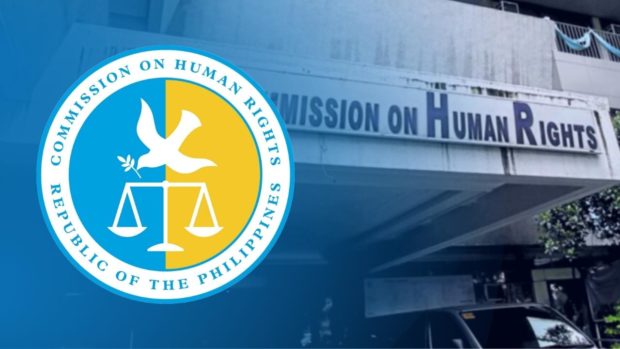
Commission on Human Rights INQUIRER FILE PHOTO
Members of the House of Representatives are looking at giving the Commission on Human Rights (CHR) fiscal autonomy to insulate it from politicking and protect its budget.
This was the topic during Wednesday’s hearing held by the House committee on human rights, which is tackling bills to strengthen the agency’s role as the country’s independent national human rights institution.
All pending House bills, including House Bill No. 9790 authored by Speaker Martin Romualdez, seek “full fiscal autonomy for the CHR to ensure prompt, immediate and unrestricted” fulfillment of its functions.
Albay Rep. Edcel Lagman and ACT Teachers Rep. France Castro noted that other “constitutionally-constituted bodies,” like the Commission on Elections (Comelec) and Office of the Ombudsman, enjoy “fiscal autonomy” that bars defunding or even a reduction of funds.
Castro noted that under former President Rodrigo Duterte, lawmakers tried to strip the CHR of its budget because it objected to his deadly war on drugs.
“They need to have full fiscal autonomy to avoid such scenarios … We need to add such a provision later on,” Castro added.
But the high tribunal ruled in 2006 that the constitution provided “fiscal autonomy” only to three constitutional commissions: the Civil Service Commission, Commission on Audit and Comelec.
The judiciary and the Office of the Ombudsman also enjoy fiscal autonomy, but the CHR was only granted limited autonomy and could not be considered a “constitutional commission” although the 1987 charter created it.
Pasig Rep. Roman Romulo, who chaired the hearing, pointed out that the “difference in the language of the constitution for other constitutionally constituted bodies and the CHR is significant.”
However, lawmakers and CHR officials are looking at an independent charter to remedy the issue and expand the agency’s powers, which the high court said should only be investigatory and recommendatory.
In a position paper he submitted to the panel, human rights lawyer Raymond Baguilat of the University of the Philippines-Institute of Human Rights asserted that independence and fiscal autonomy were crucial for the CHR.
Both the Department of Budget and Management and the Department of Justice said they fully support the bills but added that they need more time to study them.
Currently, the CHR is only mandated to release resolutions seeking charges against human rights violators, and it cannot prosecute suspects.

